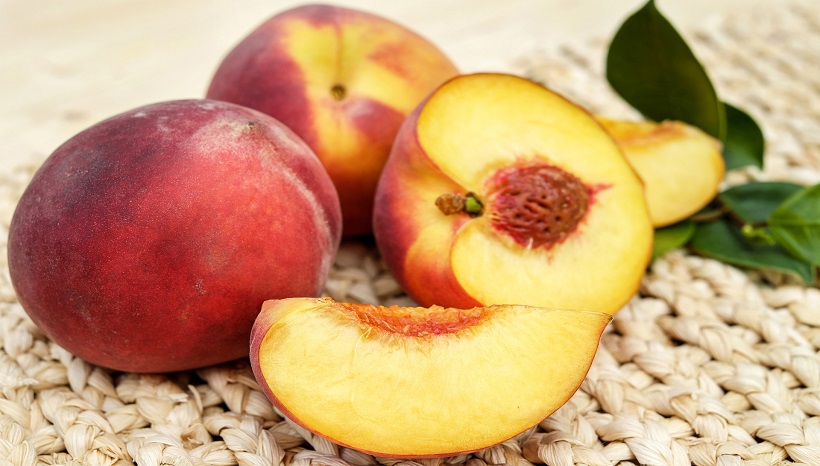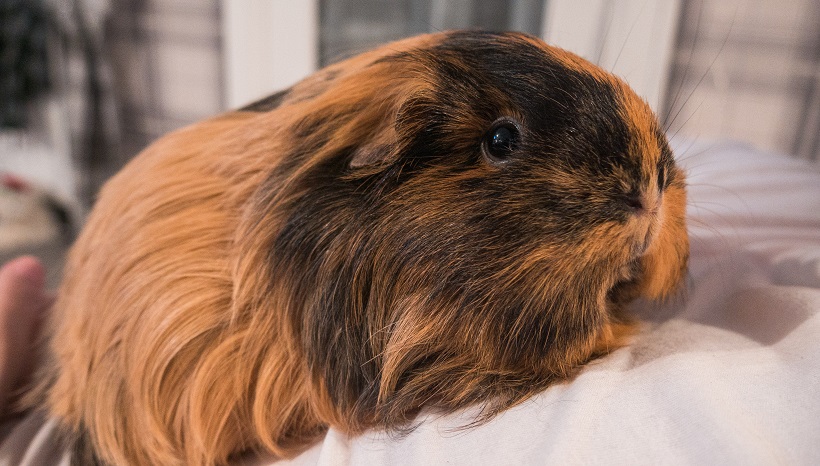Yes, feel free to feed your guinea pig on peaches. You must be worrying about what is safe for them and what should you provide them? Guinea pigs have sensitive stomachs, and they are very picky about their diet. Well, in this case, what is better than treating them with peaches! You wonder why? Because peaches are full of those nutrients that have indefinite advantages for guinea pigs.
Peaches are an excellent source of a primary nutrient, i.e., vitamin C. Peaches also contain a significant amount of water. Besides vitamin C and water, they are rich in manganese, folate, iron, and essential minerals.
However, don’t get overexcited. You can’t give peaches to your pet in an uncontrolled way. Overeating this fruit can cause problems like diabetes. So, guinea pigs can have peaches, but the quantity should remain moderate.
What Is Peach?
Before going into more details, we should first know about the peach itself.
Peach seems to be an ordinary fruit, but it has extraordinary taste and advantages. They relate to the stone fruit family and have their origin in China.
They are round in shape and found in orange, yellow, gold, red, and white color. Additionally, to be tasty, they are nutritious as they contain vitamin C, vitamin A, fiber, calcium, phosphorus, and many other indispensable nutrients.
You may mistake peach with Nectarines because of their similarity in their look. Peaches are of many varieties, and each type has its unique flavor and composition. If we want to divide peaches into three main types, we could separate them as:
Freestone Peaches
Freestone peaches are easily found in stores and are good for guinea pigs in moderation. Their particular characteristic is that you can effortlessly separate their flesh from their pit. They have their use in cooking, baking, canning, and freezing. Elberta, Flavorcrest, Santa Barbara, Snow Beauty, and Baby Crawford are some famous peaches included in freestone peaches.
Clingstone Peaches
Clingstone peaches are less used for cooking and baking purposes, and they are more desirable for simply eating them. Clingstone peaches are more miniature than freestone peaches and sweeter than them.
Some widely consumed clingstone peaches are:
Semi Freestone Peaches/ Semi Clingstone Peaches
They are a hybrid of freestone and clingstone peaches, and they have more resemblance to freestone peaches when they have become ripe. Their taste is generally more delicious than freestone peaches.
Some examples of semi freestone/semi clingstone peaches are:
Benefits Of Eating Peaches For Guinea Pigs

Health Risks Of Peaches For Guinea Pigs
Nutritional Facts Of Peaches
50 grams of peaches contains approximately:
Can Guinea Pigs Eat Peach Leaves?
It is better to serve the fruit instead of leaves to guinea pigs. Cavies have tiny teeth and sensitive stomachs, and that’s why peach leaves can induce a choking hazard in them. These pigs have a natural desire to chew something continuously. But peach leaves are not a safe option for that as they can stick in their mouth.
There is also another danger associated with eating peach leaves. These leaves contain cyanogenic glycosides. If guinea pigs consume peach leaves, cyanogenic glycosides can convert into hydrogen cyanide, which is highly poisonous to these little rodents.
So, if your pet has peach leaves, then there is a chance that it might lose its life.
Do Guinea Pigs Like Peaches?

Most guinea pigs love to be treated with peaches. Peaches are pleasant and sweet to taste, and that’s why piggies prefer them. However, not every piggy likes to have peaches. It is because of the unique preferences of every individual.
You should make sure that peaches are not accessible to guinea pigs when they roam freely. It is because they don’t have the power to resist eating if they want it. Always give them this fruit under your supervision.
Are Canned Peaches Safe For Guinea Pigs?
If you want guinea pigs to be healthy, you should not allow them to have canned peaches. Cavies are permitted to have peaches, but canned peaches are full of preservatives; that’s why they are prohibited.
Preservatives have no benefit for guinea pigs; instead, they are harmful. So, your pet can suffer from dangerous consequences if it has eaten canned peaches.
Can Guinea Pigs Eat Dried Peaches?
Guinea pigs can have dried peaches. But they have more sugar than fresh ones, and it is better to not have them. Fresh fruit and fresh vegetables should always be your first choice for your little pet.
Guinea pigs in their natural habitat can also survive on fresh foods like hay. Thus, naturally fresh foods are more healthful for them than dried ones.
What About The Peach Pit?
The peach pit is nothing less than poison for guinea pigs. Guinea pigs can’t digest everything easily, and the peach pit is almost impossible for them. Your pet will choke for sure if it tries to eat the peach pit.
Therefore, always make clear that the pit has been removed from the fruit before serving it to your little one.
Is Peach Skin Dangerous For Guinea Pigs?
Peach skin is a good choice for your little animal. Peach skin has all those nutrients that guinea pigs require. Piggies also love to eat the skin of the fruit. The only thing you need to worry about is its cleanness, and you must wash it before your pet devours it.
This action is to eliminate the risk of pesticides and harmful chemicals from the skin. You should try to grow peaches in your own house. In this way, there are fewer chances of pesticides.
How To Serve Peaches To Guinea Pigs?
Many people don’t keep in mind the serving size of peaches suitable for guinea pigs. Serving size is something that will decide whether peaches are beneficial or harmful for guinea pigs. So, you should be very careful about this.
You should only give two small pieces of peach at one time to your guinea pigs. Don’t treat your cavy with peaches more than two times per week. You must wash the peach before your pet eats it.
Observe the response of your furry friend when you first introduce it to peaches. If it hesitates in eating it, switch to some other fruit.
Alternatives Of Peaches For Guinea Pigs
You can go for the subsequent choices if your guinea pig doesn’t like eating peaches:
Conclusion
Peaches are good for guinea pigs but in a controlled way. They have a favorable attitude towards peaches as they have a sweet taste. Peaches’ pits and seeds are harmful, but the skin of the fruit is edible and healthy.
Peaches have certain health benefits for guinea pigs, and excessive consumption of them can have complexities too. Dried and canned peaches are dangerous. Only a certain quantity of peaches is good for the health of little rodents.
If you want to learn more about pets visit us at petshoods